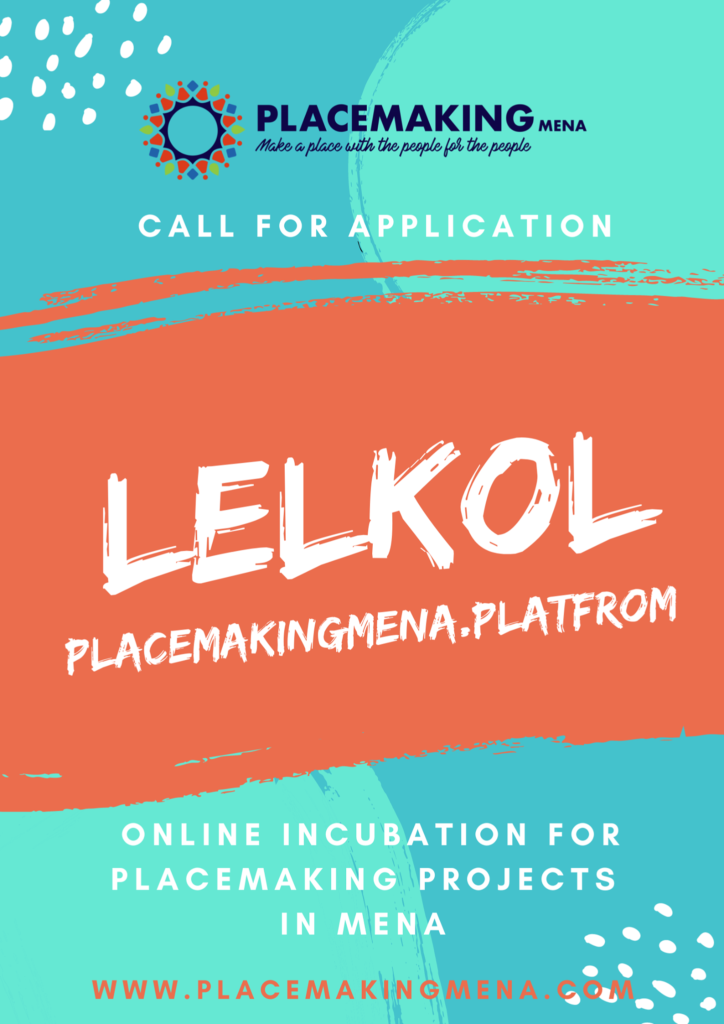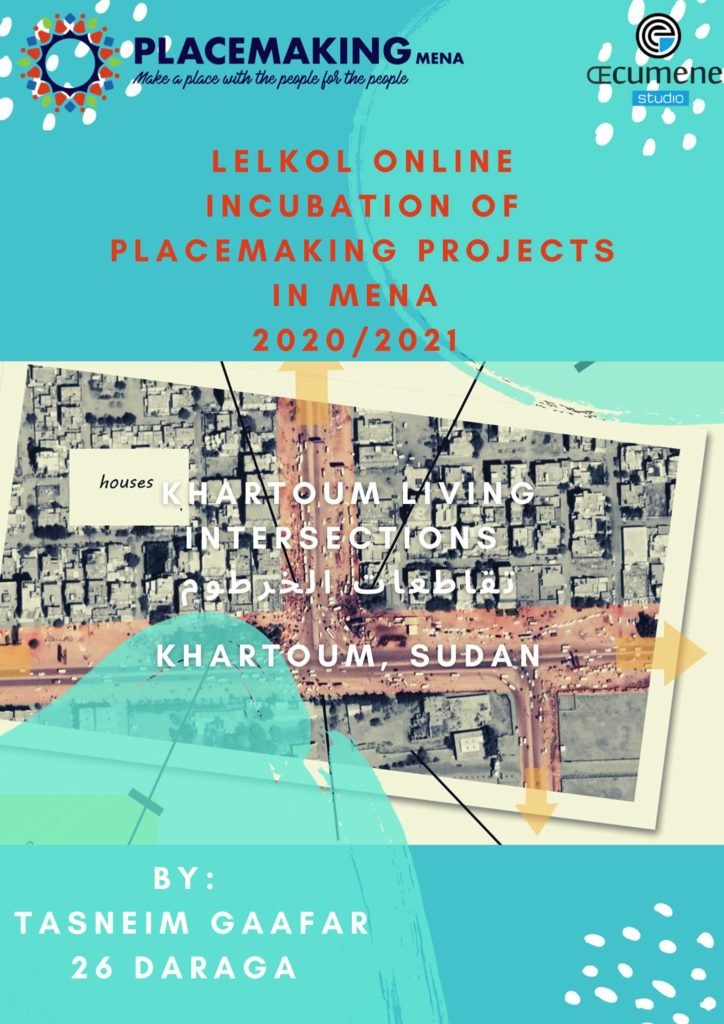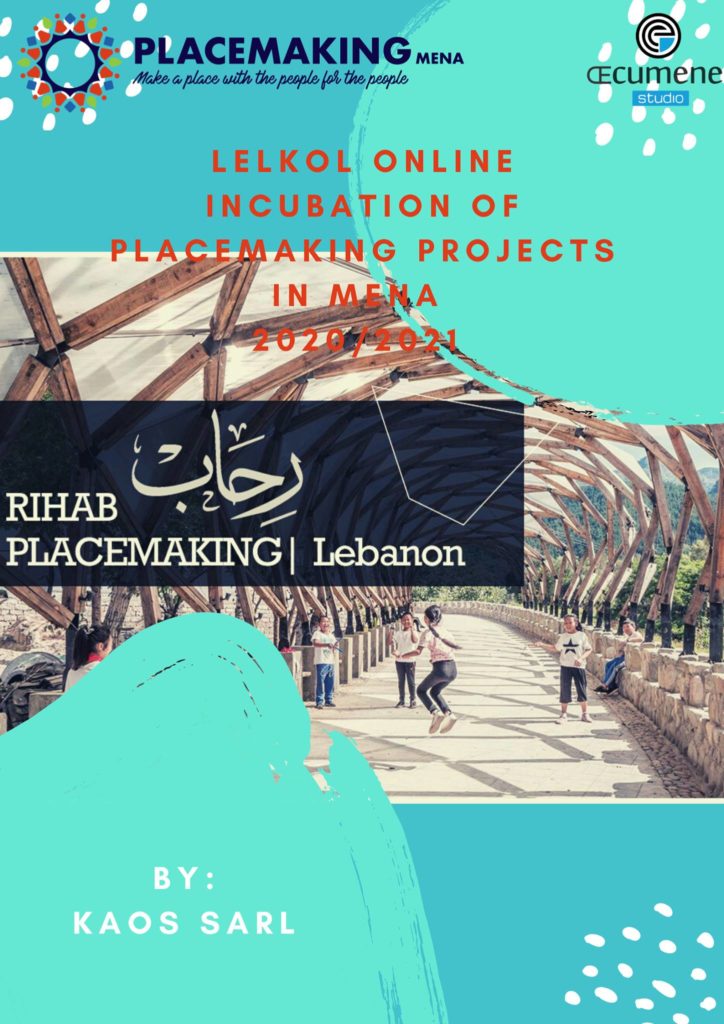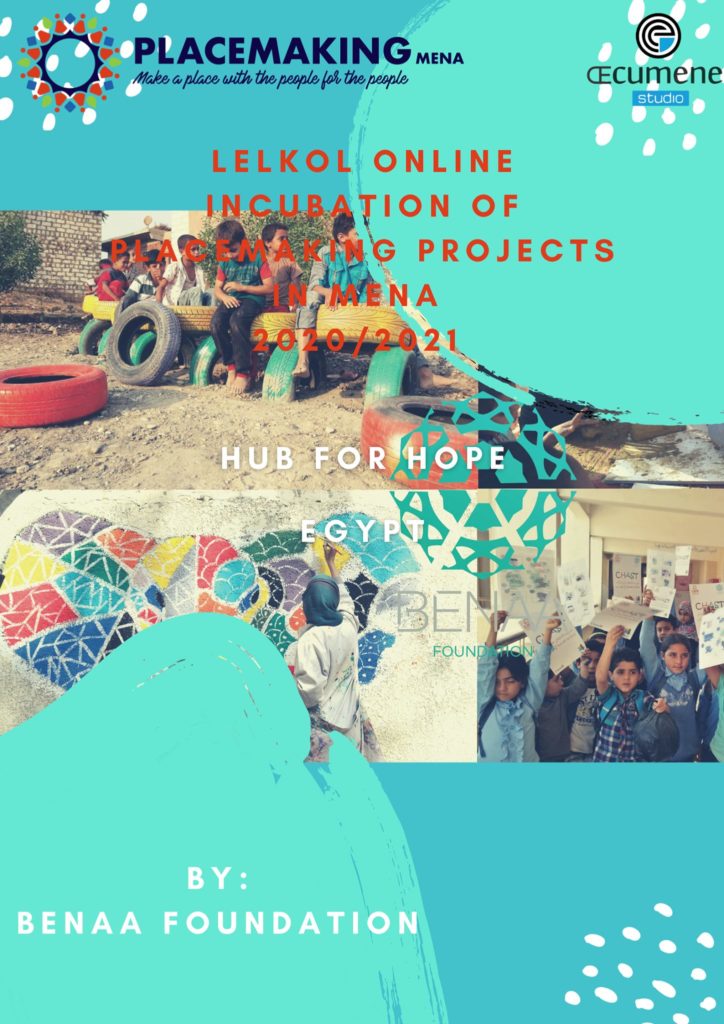Lelkol is an online incubation Workshop for Placemaking projects in MENA. In partnership with Placemaking MENAmena, and PLACEMAKINGMENAPlatform, Œcumene Studio will be offering their expertise and support to help implementing 5 placemaking projects in Egypt, Jordan, Sudan and Lebanon. Projects are initiated by community members, organisations and placemakers. The program is an intensive 8 online workshops sessions. 4 sessions in November 2020 and 4 sessions in January 2021.

A call for application was launched online, 15 projects submitted from the MENA Region, from which we selected from: Jordan, Egypt, Lebanon and Sudan
The different projects are:
Khartoum Living Intersections تقاطعات الخرطوم in Khartoum, Sudan by 26c Daraja, Khartoum municipality, lead by Tasneim Gaafar. Africa Islamic University Intersection (AIUI) is part of Khartoum crossroads development project. Focusing on several busy intersections in Khartoum, the project aims to tap into the unique social and economic activities and interactions that are happening in these unique places. The case of AIUI highlights several of such qualities, its unique location in the intersection of 2 major roads in Khartoum makes it an important connecting point between the north, east and west ends of Khartoum city and the periphery making and destination for people changing paths and moving to the ends of the city. Africa Islamic University seems to be a main deriver of this change as transportation lines were diverted to pass by it. Students from the University rely on the area for providing services and various recreation activities. It has hence grown in the past couple of years to become a hub for tea ladies and informal sellers looking to make a living. Several challenges currently face the hub including environmental degradation and pollution, difficult pedestrian movement due to traffic and informal sellers, and the overtaking of the public space for private uses.

Rihab Placemaking initiated by Billy Aboujaoude, architect from Lebanon. The project is about the rehabilitating and creating landmarks and attractions in a remote village in Lebanon. The team includes Lea Boumansour , Gaelle Saade.

Hub for hope by ( BENAA Foundation) in Egypt, Al Ayyat, El bahrwa village, by Rasha Emad Eldin – Omneya Mustafa – Aya Tarek Helmy – Omnia Ahmed.Hub for hope is a project focus on solving the lack of playing spaces in the rural village and fill the need for this spaces in the villages to enhance the kids personality. Our target is to design and implement a playing open spaces for the kids in rural areas by using local and waste material with the help of the local community and the kids themselves. In order to create happy, safe and sustainable space for kids to play freely and build their own personality.

Masahit Alhayy مساحة الحي initiated by Sara Nowar, architect from Jordan, Amman. Masahit Alhayy مساحة الحي works towards providing inclusive, engaging, and self-sustaining public space aiming at creating a positive impact in the community. It is focused on investing in spaces as well as individuals. The main core values of the initiative are: encourage the sense of social responsibility towards one’s community, provide recreational spaces and activities, promote vocational and technical education and training for different age groups, and create income generating opportunities to sustain the project and improve the livelihoods of the community.

